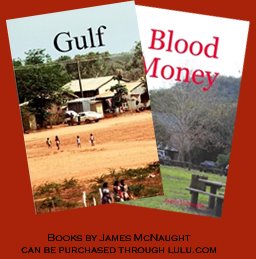Exodus 30: 22-38, “Moreover the LORD spake unto Moses, saying, Take thou also unto thee principal spices, of pure myrrh five hundred shekels, and of sweet cinnamon half so much, even two hundred and fifty shekels, and of sweet calamus two hundred and fifty shekels, And of cassia five hundred shekels, after the shekel of the sanctuary, and of oil olive an hin: And thou shalt make it an oil of holy ointment, an ointment compound after the art of the apothecary: it shall be an holy anointing oil. And thou shalt anoint the tabernacle of the congregation therewith, and the ark of the testimony, And the table and all his vessels, and the candlestick and his vessels, and the altar of incense, And the altar of burnt offering with all his vessels, and the laver and his foot. And thou shalt sanctify them, that they may be most holy: whatsoever toucheth them shall be holy. And thou shalt anoint Aaron and his sons, and consecrate them, that they may minister unto me in the priest’s office. And thou shalt speak unto the children of Israel, saying, This shall be an holy anointing oil unto me throughout your generations. Upon man’s flesh shall it not be poured, neither shall ye make any other like it, after the composition of it: it is holy, and it shall be holy unto you. Whosoever compoundeth any like it, or whosoever putteth any of it upon a stranger, shall even be cut off from his people. And the LORD said unto Moses, Take unto thee sweet spices, stacte, and onycha, and galbanum; these sweet spices with pure frankincense: of each shall there be a like weight: And thou shalt make it a perfume, a confection after the art of the apothecary, tempered together, pure and holy: And thou shalt beat some of it very small, and put of it before the testimony in the tabernacle of the congregation, where I will meet with thee: it shall be unto you most holy. And as for the perfume which thou shalt make, ye shall not make to yourselves according to the composition thereof: it shall be unto thee holy for the LORD. Whosoever shall make like unto that, to smell thereto, shall even be cut off from his people.”
The special oil for anointing priests had to be mixed by specialist perfume makers. An unskilled person was not allowed to make this special but someone who was trained and skilled. The measurements were specific and ingredients were distinct so that no one would use this special oil for another purpose for it was dedicated to the Lord. Not only this, the instrument used in the Lord’s service could only be touched by people who were qualified and ceremonially pure as well. The conditions behind service for the Lord were strict and impossible for the normal person. However the Lord said, “And ye shall be unto me a kingdom of priests, and an holy nation. These are the words which thou shalt speak unto the children of Israel.” (Ex 19: 6) A priest is someone who represents the rest of the people to the Lord and represents the Lord to the rest of the people. Abraham was called so that his descendants could be a source of blessing to all the families of the earth ( Gen 12: 3, “And I will bless them that bless thee, and curse him that curseth thee: and in thee shall all families of the earth be blessed.”) These two issues seem to be incompatible but God found a way. One of Abraham’s descendants, the Lord Jesus Christ, was perfect in every way and was, thus, qualified to act a a priest to the whole earth. He was able to make everyone clean through His own act of sacrifice and thus the Lord has brought blessing to all the families of the earth.
(The view expressed in this blog are my own and should not be taken as inspired in any way.)
